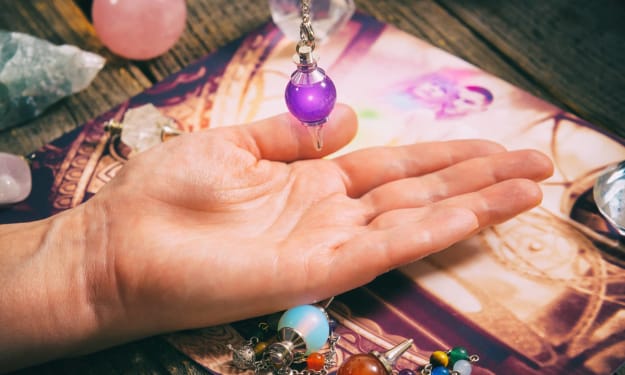The Unquantifiable Equation
Exploring the Many Facets of Love

Love. A word whispered in hushed tones, sung about by poets for centuries, and the driving force behind countless stories, both real and imagined. Yet, for something that permeates every aspect of human existence, love remains stubbornly elusive to a single, definitive definition.
It's a paradox: a powerful force that can both build us up and tear us down, a complex dance of emotions, choices, and experiences. This article delves into the multifaceted nature of love, exploring its various forms, its biological and cultural underpinnings, and the role it plays in shaping our lives.
The Spectrum of Love: From Filial Bonds to Romantic Passion
Love isn't a singular entity; it exists on a vast spectrum, encompassing a range of emotions and relationships. We begin experiencing love in its purest form – the unconditional love of a parent or caregiver. This primal bond provides a sense of security and lays the foundation for future emotional development.
As we grow, we forge friendships, fostering a love built on connection, shared experiences, and mutual respect. Romantic love, often portrayed as the pinnacle of love, brings with it an intoxicating cocktail of emotions – intense passion, desire, and a deep sense of intimacy.
However, love extends far beyond romantic relationships. The love for a sibling, the camaraderie between teammates, the devotion to a pet – these connections, though different from romantic love, are no less vital to our well-being.
The Biology of Love: A Cocktail of Chemicals
Love isn't just a feeling – it has a powerful biological basis. When we fall in love, a cascade of hormones floods our system. Dopamine, the "feel-good" chemical, creates a sense of euphoria and excitement. Oxytocin, often referred to as the "bonding hormone," strengthens our connection with the object of our affection. Serotonin, the mood regulator, plays a role in feelings of happiness and well-being.
These chemicals, working in concert, create the intense emotions associated with falling in love. However, as the initial rush fades, other hormones come into play. Vasopressin, linked to attachment and long-term bonding, grows in significance, helping to sustain love over time.
The Cultural Tapestry of Love: Expressions Across Societies
Our understanding and expression of love are heavily influenced by cultural norms and expectations. In some cultures, romantic love is seen as a personal choice, with arranged marriages still practiced in others. The concept of "platonic love" between friends may not exist in cultures where every relationship carries a romantic undercurrent.
Public displays of affection are commonplace in some societies, while others favor a more reserved approach. Even within cultures, variations exist; consider the difference between the expressive "I love you" pronouncements of Western cultures and the more subtle expressions preferred in some Asian societies.
This diversity highlights the fact that love, while universal in its human experience, wears many different masks across the globe.
The Evolution of Love: From Survival to Self-Actualization
Love has played a crucial role in human evolution. The strong bonds between parents and children ensured the survival and development of offspring. Romantic love, with its emphasis on pair-bonding, facilitated stable family units and resource sharing. However, the concept of love has evolved beyond its purely biological roots.
Today, love is increasingly viewed as a path to personal growth. We seek partners who challenge and inspire us, who help us become better versions of ourselves. This pursuit of self-actualization through love reflects a shift in human priorities, but the core essence of connection and shared experiences remains constant.
The Challenges of Love: Navigating Conflict and Change
Love isn't a fairy tale. It requires effort, communication, and a willingness to compromise. Disagreements and conflict are inevitable. Jealousy, possessiveness, and insecurity can rear their ugly heads. Maintaining a healthy relationship involves navigating these challenges.
Open communication, empathy, and a commitment to understanding each other's perspectives are essential. Love also requires adapting to change. People evolve over time, their needs and desires shifting. Healthy relationships allow space for individuals within the couple to grow and mature while maintaining a strong sense of connection.
The Enduring Power of Love: A Force for Good
Despite its complexities, love remains a powerful force for good in the world. It motivates acts of kindness and compassion. It inspires creativity and innovation. It fosters a sense of belonging and community. Strong, healthy relationships provide a foundation of support, helping us weather life's storms.
Love motivates us to be better individuals, fostering empathy and encouraging us to see the world beyond ourselves. In a world that can be harsh and unforgiving, love offers a beacon of hope and a reminder of our shared humanity.
A Love Letter to Love
Love, in all its messy, wonderful complexity, is one of the defining features of the human experience. It shapes our lives, guides our choices, and connects
About the Creator
Thelma McGuigan
Curious explorer of ideas. Sharing thoughts on a variety of topics on Vocal.
Enjoyed the story? Support the Creator.
Subscribe for free to receive all their stories in your feed. You could also pledge your support or give them a one-off tip, letting them know you appreciate their work.






Comments
There are no comments for this story
Be the first to respond and start the conversation.